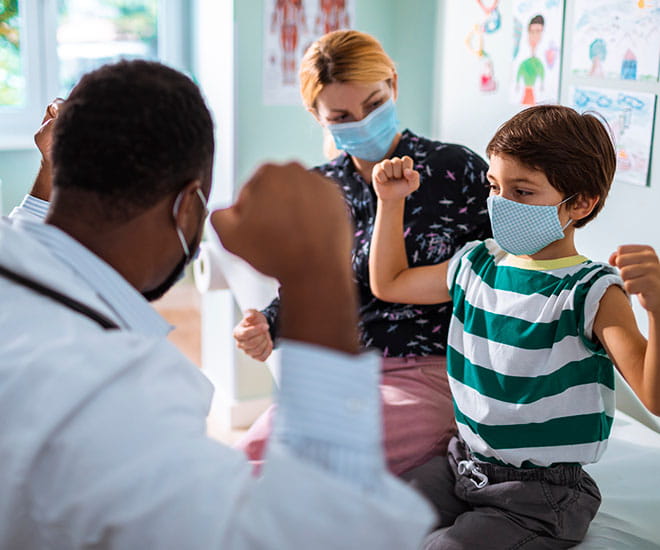
Pediatrics Residency
Geisinger’s pediatrics residency teaches you how to care for children of all ages — from birth through adolescence.
About us
Choosing a residency is an important decision. So we’re committed to helping you find the right one.
Here, you’ll find a comprehensive, high-quality and personally rewarding educational experience that will prepare you for a career in medicine. If you’re interested in the pediatrics program at Geisinger, we invite you to apply.
Paul Bellino, MD, program director
Our program offers:
- Comprehensive pediatric training at the only rurally located children's hospital in the United States and one of the few rural-based tertiary care medical centers in the country.
- A broad-base curriculum that provides a solid foundation to either enter practice with confidence or excel in further fellowship training.
- An extensive outpatient clinical experience with a strong emphasis on continuity of care, healthcare supervision and developmental aspects of pediatric care.
- A continuity experience with engaged patients and families as well as a clinic with one of the lowest “no show” rates in the country (only 9%).
- Broad range of pediatric subspecialty rotations including elective opportunities in pediatric surgical subspecialties and community-based programs.
- Flexible curriculum which allows us to create a unique training opportunity for each of our residents while still fulfilling all Accreditation Council for Graduate Medical Education (ACGME) Pediatric Residency Review Committee (RRC) requirements. Tracks are not needed as each resident has a wide array of opportunities permitting concentration of study to provide them with a sound foundation for careers in primary care, inpatient medicine or subspecialty fields.
- Close relationship with full-time faculty, who carry academic teaching appointments from Geisinger Commonwealth School of Medicine and Philadelphia College of Osteopathic Medicine.
- Strong camaraderie among residents.
- Opportunities for additional scholarly activities including research projects, quality improvement initiatives and educational writing.
- Membership in the American Academy of Pediatrics.
- Subscriptions to Pediatrics in Review, Pediatrics and Pediatrics Review and Education Program (PREP)
- Publications: The Harriet Lane Handbook and The Red Book.
- A health sciences library that provides access for residents to information tools including Up to Date, Ovid, MD Consult and more than 1,300 on-line electronic journals which can be accessed remotely.
- Beautiful, pastoral community which offers a wide range of recreational and cultural activities, affordable housing in a variety of settings, superb local school system and numerous surrounding colleges and universities.
Apply today
The Geisinger difference
Our values — kindness, excellence, safety, learning and innovation — are at the heart of everything we do. We provide high-quality, patient-centered, cost-effective care to our patients across northeastern and central Pennsylvania. And our residents learn to do the same.Follow us on instagram
Follow us
Content from General Links with modal content
